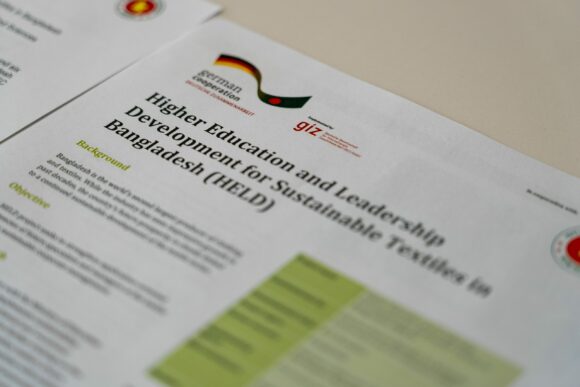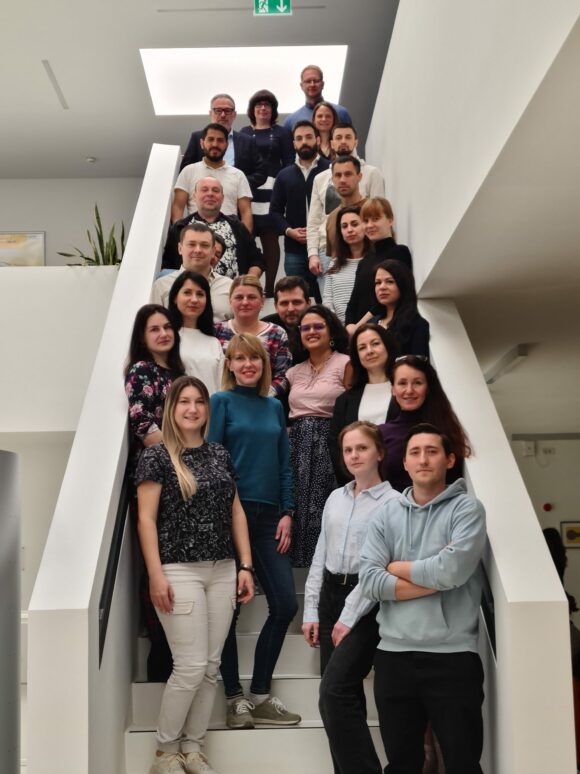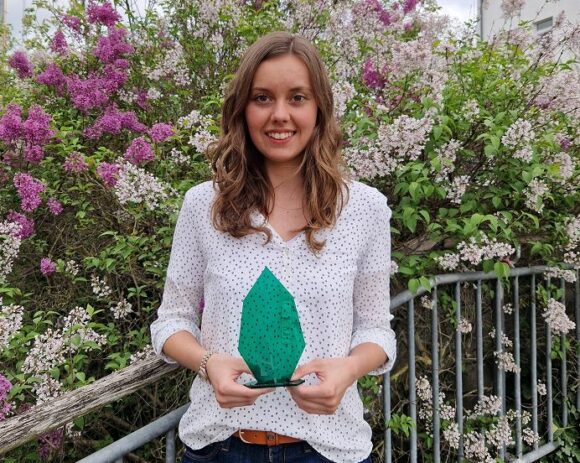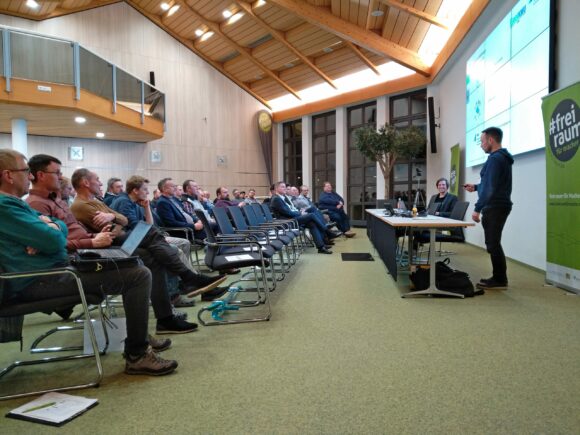A pioneering project in the field of virtual reality has been launched by the Vocational School Center Kronach and the Institute for Information Systems at Hof University of Applied Sciences (iisys). In this project, practical situations are simulated in virtual space in such a way that they can be experienced and solutions learned by dual students and trainees.
In dual vocational training, it often happens that practical content cannot be taught easily in vocational school due to applicable safety requirements. Nevertheless, they are highly relevant to the apprentices’ professional world and are indispensable.
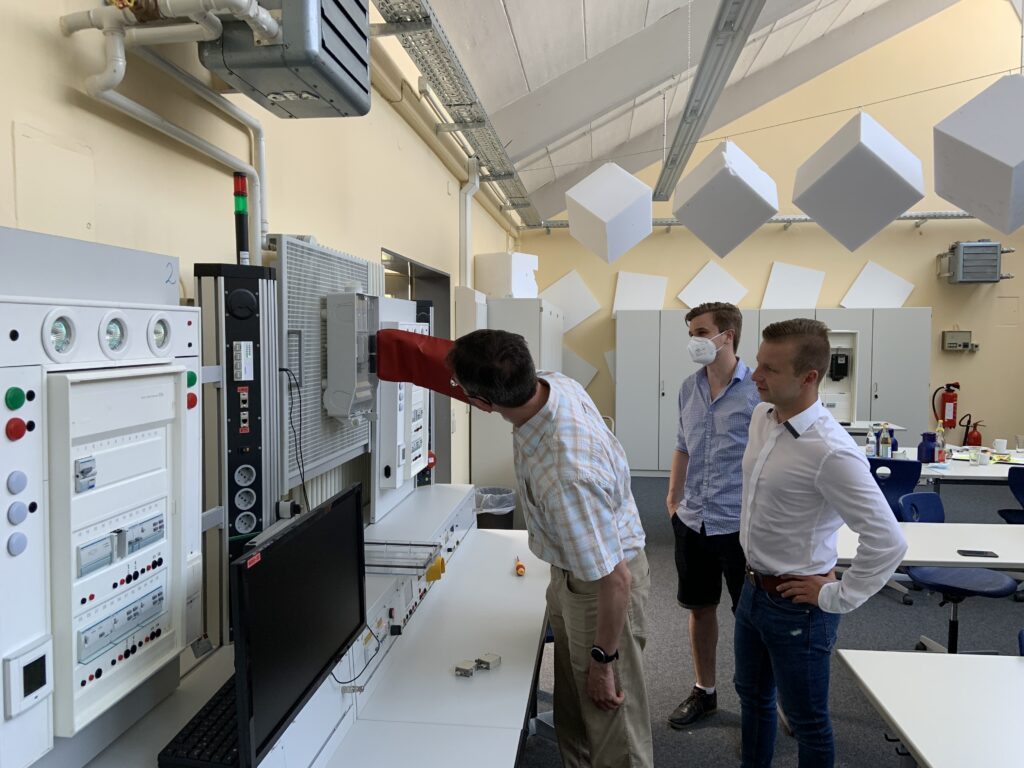
Representation of everyday work
The Institute for Information Systems at Hof University of Applied Sciences (iisys), with the participation of the Kronach Vocational School Center, has therefore now launched a project to meet this challenge. Specifically, the project involves live work in electrical engineering, which is to be transferred to virtual space. In the detailed environment of a technology room, users will be able to change an energy meter with the help of virtual reality goggles and appropriate controllers and learn about the dangers of handling electricity.
Interest from Kronach
The project idea of depicting job-related learning content in virtual rooms is the subject of research by Prof. Dr. René Peinl, head of the Institute for Information Systems at Hof University of Applied Sciences (iisys). Together with his research assistant Marcel Igel, he started looking for a suitable project partner who could support him in designing the content of a project scenario. Via the Kronach Innovation Center, contact was finally made with the vocational school center in Kronach. Thomas Böhm and Florian Brückner, both teachers of electrical engineering, were very open to cooperation – after all, they have been working intensively on multimedia education for years in inter-school working groups.
Detailed replica in virtual space
The project was initially initiated online – via video conference. Together, they discussed initial ideas for the virtual environment, looked for suitable 3D objects and discussed possible action scenarios. [RPE1] In order to ensure a standard-compliant reference to the working world, Detlef Weißmann, head of the Kronach-Kulmbach Guild for Electrical Engineering and Information Technology, was also consulted as a specialist.
After the initial discussions, the focus of an on-site visit to the vocational school center in Kronach was initially on a tour of the technical room, which was to be converted into virtual reality. From the fire extinguisher to the emergency stop light, every detail, no matter how small, was documented. Following the tour of the room, the Kronach vocational school teachers once again demonstrated the central work techniques, such as pulling a NH fuse or changing a meter.
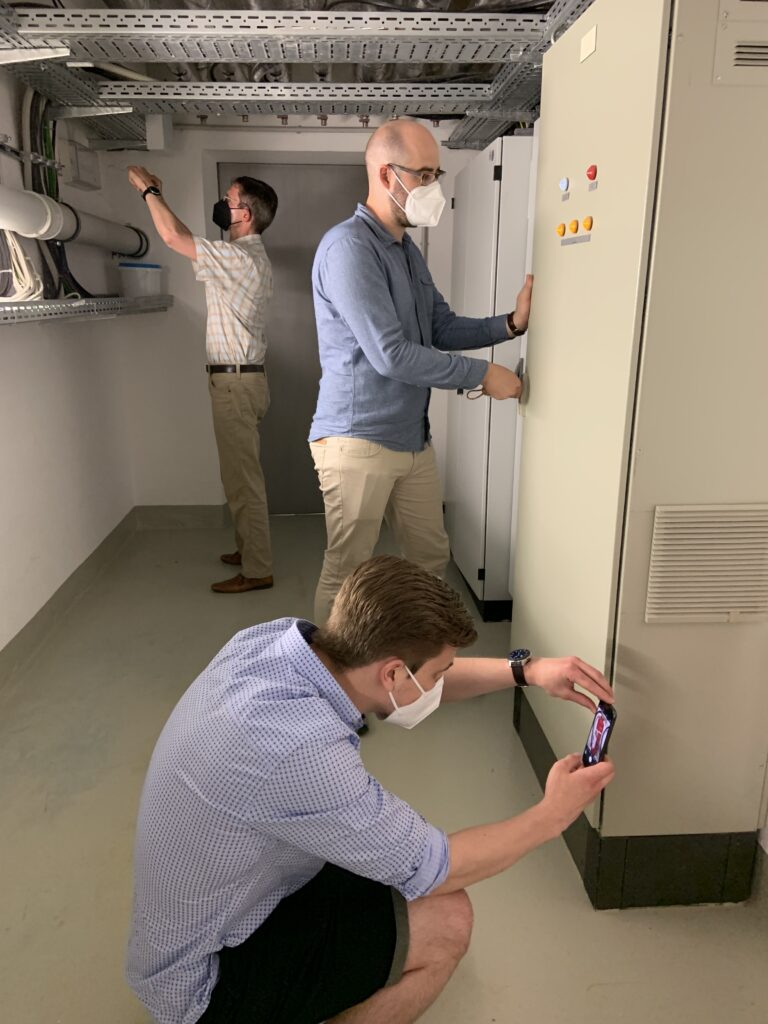
Application reports
The project is to be completely transferred to the virtual world by September 2021. There would then be nothing to stop it being used in vocational training and continuing education in Upper Franconia. Detlef Weißmann would like to advocate active use of the technology in the craft environment after completion of the project. One conceivable use would be at inter-company training events organized by the Upper Franconian Chamber of Crafts or at training fairs.
Funding
The project is funded by the Free State of Bavaria for the research center “Man Machine Interface” in Kronach and the European Union within the framework of the EFRE technology transfer project “Digital Transformation of SMEs with Artificial Intelligence” of the Hof University of Applied Sciences.




